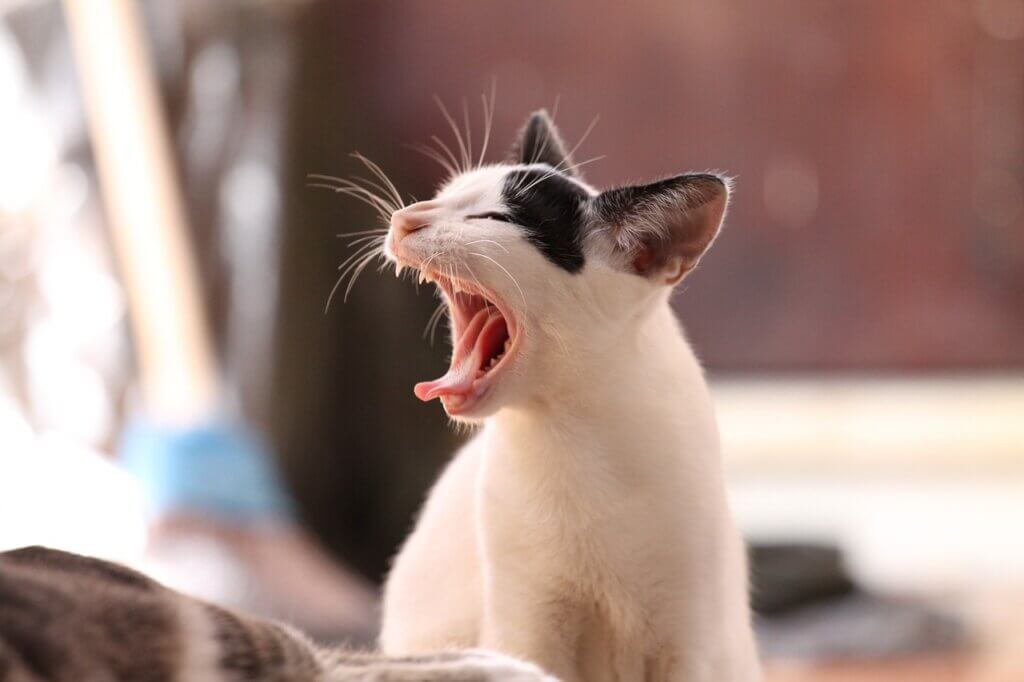Pet Sensitivity To Sound: Why Soundproofing Can Help Your Pets
We know that loud, unwanted, and unexpected noise affects our quality of life. But what about our pets? These family members can’t tell us when the noise in their environments makes them uncomfortable. Did you know that your pets are more sensitive to noise than you are? Learn more about how these sounds impact your pets today!
Pitch
Our most common pets, dogs and cats, have far more sensitive hearing than humans. The pitches, or frequencies, that we can hear are measured in Hertz (Hz). Humans hear sound, and intrusive noise, between approximately 20 Hz and 20,000 Hz.
Dogs and cats don’t hear as many of the low pitches, but they are much more sensitive to higher ones. A dog may have a range of around 67 Hz to 45,000 Hz. A cat may hear between 55 Hz and 79,000 Hz.
What this means in real-world terms is that your pets hear sounds outside of your perceivable range. A noise that you can’t hear can feel painfully loud to your pets.
Volume
Pets also react to the volume of noise in their surroundings, just like people. We know that loud sounds, especially those that are sustained, can hurt human hearing. The threshold for safety is about 85 decibels for us. Noise that reaches that level can damage the sensitive structures in our ears.
Cats and dogs have even more sensitive hearing. They have more muscles controlling their ears and can distinguish between different sounds with remarkable accuracy. They can hear distant sounds much more clearly than humans. So what can be damaging to people is far more dangerous for your beloved pets.
Sources of Noise Pollution Stressing Pets
There are so many noises that occur on a day-to-day basis that can affect us and, most especially, our pets. Traffic, construction, car horns, even neighbors, other pets, and kids playing can all be unwanted noises that are seeping into our spaces. But what about the even louder, more threatening sounds? What kind of stress are the loudest disruptions causing our pets?
Fireworks and thunderstorms are what immediately come to mind as sources of pet stress, especially for dogs. One study showed that 52% of participating dogs were afraid of fireworks. Experts estimate that up to 30% of dogs are afraid of thunder.
Cats are a little harder to pin down, which will come as no surprise to anyone who shares a home with a cat. But an NIH study showed that 60% of cat owners reported that their pets were afraid of loud noises.
If you feel overwhelmed or annoyed when you hear a car horn, imagine how your dog feels when they hear the boom of thunder. Again, sources of noise pollution include not only fireworks and thunder but also such everyday items as vacuum cleaners, sirens, and construction noise. Even electronics can be distressing because of the high-frequency sounds they emit.
Noise Anxiety in Pets
Even if the noise in your home is not loud enough to damage your pets’ hearing, it can cause considerable harm, stress, and anxiety.
Since they can’t tell us they’re fearful or in pain, pet owners need to look for behavioral signs that noise is harming their beloved companions. Many of us unknowingly overlook these signs.
Dogs and cats may pace, shake, or cry. They may also hide, yawn, put their tail between their legs, or become destructive or aggressive. Watch for flattened ears, upset stomachs, or lip and nose licking. Dogs may pant or drool excessively.
Becoming more attuned to your animals’ behavior will help you understand the noises that cause them stress.
Reducing Noise Pollution for Pets
As much as we want to, we can’t make the world quieter for our pets just as we can’t make it quieter for ourselves. But there are ways to reduce the stress your pet feels.
You can provide your pets with a safe, quiet space where they can escape unwanted loud or high-pitched noises. A great first step is soundproof windows. With CitiQuiet, you can add a layer of soundproofing to a single room or your entire home. You don’t need to alter your existing windows, get permits, or give up any functionality.
CitiQuiet soundproofing window inserts work with your current windows to reduce unwanted sound by as much as 95%. They also have the extra benefits of reducing dust and dirt, lowering heating and cooling costs, and adding to the value of your property.
In addition to soundproof windows, offer your pet their own space away from even household noises. A room without electronics, where noise is dampened by soft bedding and toys, can be a haven for your dog or cat. Pay attention to your phone’s alerts and ringtones, silencing them when your animal feels stressed.
Becoming a More Compassionate Pet Owner
We don’t always recognize the signs of noise-induced stress in our pets, so we don’t always respond appropriately. By learning how to tell when your pet needs peace and quiet, you can decrease their fear and agitation.
Once your CitiQuiet soundproof windows are installed, your pets’ anxiety will be triggered far less often by common outdoor noise pollution. If you know there will be fireworks or a thunderstorm is in the forecast, close your windows to get the most benefit from their sound-blocking abilities.
If your pet is bothered by indoor noise like appliances or electronics, bring them to their quiet space. Some experts recommend that you leave them alone to self-soothe so you don’t reinforce their fear. Others think that sitting with them quietly is more beneficial.
Improving Quality of Life
Our pets are part of our families. When they hurt, we hurt. At CitiQuiet, we’re dedicated to improving the quality of life for every family member. Our soundproof windows reduce noise-induced stress for people and their four-legged companions.
They also keep indoor air cleaner and make heating and cooling more efficient. They make your home more comfortable every day. Combine the benefits of soundproofing with the reduction of indoor noise and the introduction of a quiet space for your pet.
Learn the signs of your pet’s stress. Knowing when they need quiet is the best way to improve their quality of life and decrease unwanted noise-related behavior. If your pet has a severe reaction to loud noises, talk to your vet about more strategies.
Reducing unwanted, intrusive noise is good for everyone. Humans, dogs, and cats all live happier, healthier lives when they have access to a quiet space. CitiQuiet can help. Contact us today to learn more about our soundproof window inserts.







